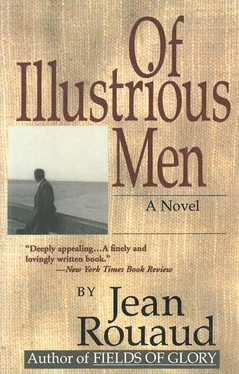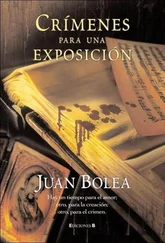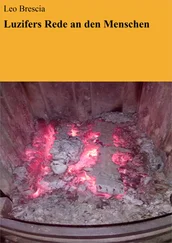Jean Rouaud - Of Illustrious Men
Здесь есть возможность читать онлайн «Jean Rouaud - Of Illustrious Men» весь текст электронной книги совершенно бесплатно (целиком полную версию без сокращений). В некоторых случаях можно слушать аудио, скачать через торрент в формате fb2 и присутствует краткое содержание. Год выпуска: 2011, Издательство: Arcade Publishing, Жанр: Современная проза, на английском языке. Описание произведения, (предисловие) а так же отзывы посетителей доступны на портале библиотеки ЛибКат.
- Название:Of Illustrious Men
- Автор:
- Издательство:Arcade Publishing
- Жанр:
- Год:2011
- ISBN:нет данных
- Рейтинг книги:4 / 5. Голосов: 1
-
Избранное:Добавить в избранное
- Отзывы:
-
Ваша оценка:
- 80
- 1
- 2
- 3
- 4
- 5
Of Illustrious Men: краткое содержание, описание и аннотация
Предлагаем к чтению аннотацию, описание, краткое содержание или предисловие (зависит от того, что написал сам автор книги «Of Illustrious Men»). Если вы не нашли необходимую информацию о книге — напишите в комментариях, мы постараемся отыскать её.
Of Illustrious Men — читать онлайн бесплатно полную книгу (весь текст) целиком
Ниже представлен текст книги, разбитый по страницам. Система сохранения места последней прочитанной страницы, позволяет с удобством читать онлайн бесплатно книгу «Of Illustrious Men», без необходимости каждый раз заново искать на чём Вы остановились. Поставьте закладку, и сможете в любой момент перейти на страницу, на которой закончили чтение.
Интервал:
Закладка:
Corpus Christi was the occasion for Joseph the Great to demonstrate his talents as an organizer and inventor. The procession of the Blessed Sacrament followed a path strewn with flower petals that, because of late flowering, were most often replaced by wood shavings of different colors, strung out in a long ribbon of gaudy geometrical patterns through the streets of the parish, and upon which Bideau, leading with the monstrance, was the first to tread. Each district was responsible for the decoration of its own sector. The upper town district had the advantage of possessing within its ranks, in the person of the charcutier, an authentic artist capable of creating a Victory of Samothrace in lard or a crèche in goose pâté. In purely aesthetic terms, it was out of the question for us to try to compete, with our reproduction of a Christ in Majesty in his flowered halo. So we confined ourselves to a rudimentary mosaic, with diamond shapes and ornamental borders, embellished at a right angle with a rosette, the sort schoolboys draw with their compasses when they’re bored.
Early that Sunday morning the volunteers got together in the garage, its doors wide open to welcome onlookers, part-time helpers who would muck in for ten minutes, advisers (that’s not the way to do it, you should do it like this), the people who told true stories of run-over cats — or more likely hens, which, being more stupid and less swift, paid a heavy price to passing cars — those who were dying of thirst (refreshment breaks had been planned for the fresco painters), the busybodies, and, as the morning wore on, the women and children.
The first phase consisted of diluting the dyes in big bowls and then filling the bowls with the wood shavings brought in cardboard boxes and wheelbarrows from the nearby carpenter’s shop and stockpiled throughout the year in anticipation of the procession. People took turns to stir the mixture with a stick whose submerged tip became coated, according to the different bowls, in green, yellow, blue, or orange, acquiring a special status by this distinguishing mark, a sort of field marshal’s baton that, instead of being burned or thrown away, was later recycled to act as a stake for a rosebush. You had to take care not to splash yourself when you were stirring this thick soup, because the dye was indelible and got ingrained under your fingernails. Those of us who thought it too womanish to wear gloves when we spread out the shavings still had a thin stripe of color in the lines of our hands for a long time afterward, which some seemed to be in no hurry to get rid of; holding out their open palms, it was a way of saying “I was there!” before starting to tell the tale of that joyous morning.
For the stenciled fresco, we used stretchers that looked something like sections of a railway track. The ties between the two wooden rails made rectangles that we merely had to fill with colored shavings. This done, four men delicately picked up the frame, taking care not to joggle the fragile mosaic, and joined it to the previous sections, repeating the operation until it reached our border with the neighboring district.
Cars that day were requested to make a detour, so as not to break the long multicolored ribbon, but this request didn’t go unchallenged. The artists kneeling on the pavemerit, bending over their design, conspicuously occupied the middle of the road. Confident of their legitimacy, they were certainly not prepared to be dislodged by repeated horn blowing. To be on the safe side — and because Joseph wanted to give him a part to play — Andre, already slightly tipsy, was asked to direct the traffic, which, fortified by the approval of the group and sure of his authority, he did, putting two fingers in his mouth to whistle at offenders, and even going so far as to dye his handkerchief red in one of the tubs and wave it in front of the motorists’ windshields to indicate a no-go area.
The road running past the garage was regularly used by a herd of cows that grazed in the luxuriant meadows in the lower part of the town. You didn’t have to be a particularly skilled tracker to see which way they’d gone. Ideally, the best thing was to sweep the road before the procession was due, but time was short that day, there weren’t enough shavings, so Joseph hurriedly made an improvised stretcher out of two rafters held together by four cross-pieces, in the meantime sending an army of volunteers to trim the box and laurel trees in the garden. We’d barely finished scattering their little round and spear-shaped leaves alternately when the cortege came into view rounding the corner. We all lined up at the side of the road, our arms crossed or our hands held one over the other like a fig leaf, joining in each hymn or prayer as it went by, adopting the appropriate air, contrite expression, and inspired gaze, when a perfidious spectator nudged his neighbor. When he had had time to react, he quickly passed on the good news, which spread up the ranks like wildfire, and our gravity fought a losing battle with the irrepressible desire to laugh that was visible on everyone’s face, some biting their lips, others suddenly turning their backs, still others choosing to break ranks in order to give free rein to their unseemly mirth, while Bideau, deep in meditation, holding the monstrance up in front of his face, moving at an inordinately slow pace over the carpet of green leaves, ceremoniously walked in cow dung.
Was it because he had premonitions, that for our last outing he insisted on taking us to visit Paris? It had been several years since we had gone on vacation, which, in spite of the statistics, didn’t worry us all that much. We were quite happy to spend the summer within the high walls of the garden. It was going away, on the contrary, that bothered us. Not so much because we were leaving our familiar landmarks behind; it was more that we were suddenly exposed to other people’s eyes — and they were all we were aware of. In restaurants they drew attention to the fact that you weren’t holding your fork properly; in hotels, that you made too much noise walking down the corridors looking for your room; in a cable car, that your presence was likely to overload it, which made you feel like jumping out into the void; at the Cirque de Gavarnie, that you were walking up it while richer or bolder people rode up on muleback; at the Chateau de X, that you were quite wrong to think that du Guesclin’s bed was very short and therefore deduce that he too must have been short; and, at La Bourboule, that you were equally wrong to make a face when you drank the arsenical spa waters. Naturally, it was the same watchful eyes that had always stopped us from going to the beach: our skin was too pale. Paris was even more intimidating. The decision to visit the capital had, it seems, been made hastily, almost on the spur of the moment, in the same way as he had one day come home at about ten in the evening, suddenly taken a notion to knock down a partition, and immediately started to demolish it with a hammer. The choice of Paris seemed all the more surprising in that our conversations didn’t revolve like moths around the City of Light. This change of direction, after the severity of the Breton landscapes he had accustomed us to, was as if he were putting the life of the stones behind him and hoping to be flooded with light. Like an irradiant remission before the dark night.
He had spent his last few holidays repairing and making improvements to the house, lining and insulating the ceilings, repapering the bedrooms, arranging and enlarging the shop, giving it access to the basement so it had two levels, like in the town. That summer, according to his plans, which ranged from the necessary to the superfluous, he should have been starting on the garden. He had finally gotten together all the materials for his great project. Buried under the tall grass, the stones brought from Brittany had been awaiting their final destination for many months. The capital was covered in green moss. All the broken crockery had ended up in a crate, and we were beginning to doubt if it would ever pave the basin of a fountain. But, whether because the doctors had advised against it or because he had lost interest and didn’t have the strength, he seemed to have decided to let his Babylonian reverie lie dormant.
Читать дальшеИнтервал:
Закладка:
Похожие книги на «Of Illustrious Men»
Представляем Вашему вниманию похожие книги на «Of Illustrious Men» списком для выбора. Мы отобрали схожую по названию и смыслу литературу в надежде предоставить читателям больше вариантов отыскать новые, интересные, ещё непрочитанные произведения.
Обсуждение, отзывы о книге «Of Illustrious Men» и просто собственные мнения читателей. Оставьте ваши комментарии, напишите, что Вы думаете о произведении, его смысле или главных героях. Укажите что конкретно понравилось, а что нет, и почему Вы так считаете.












